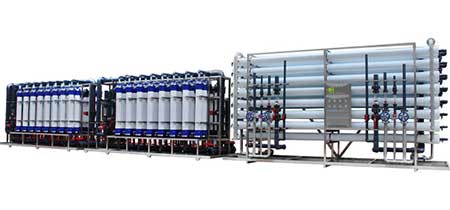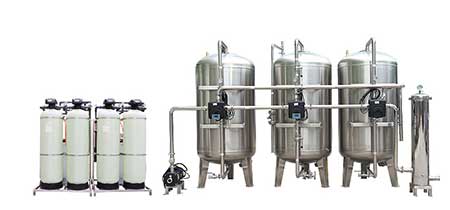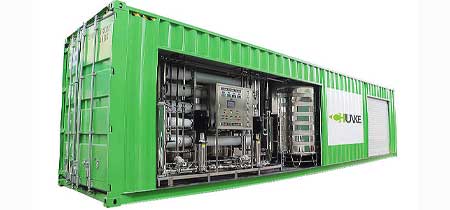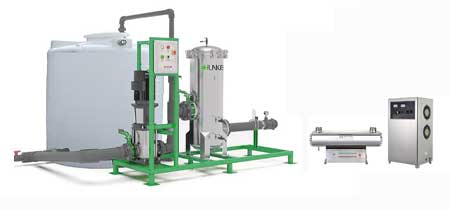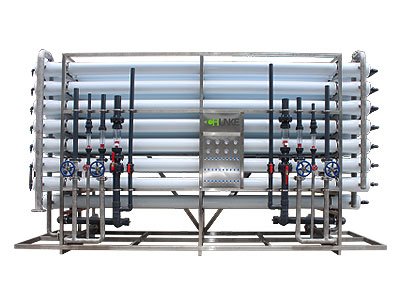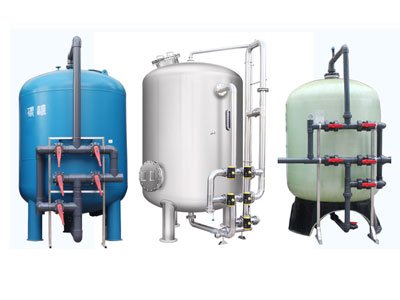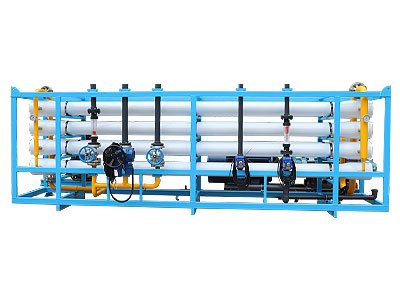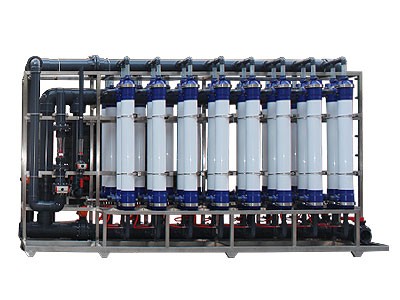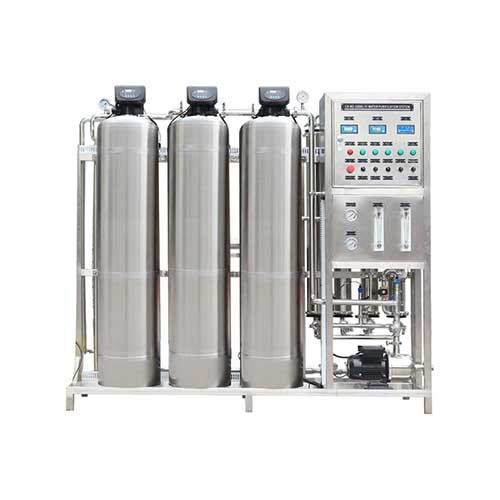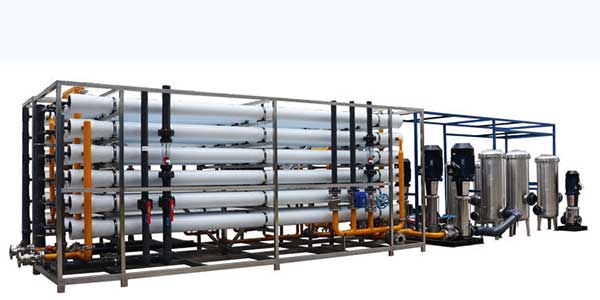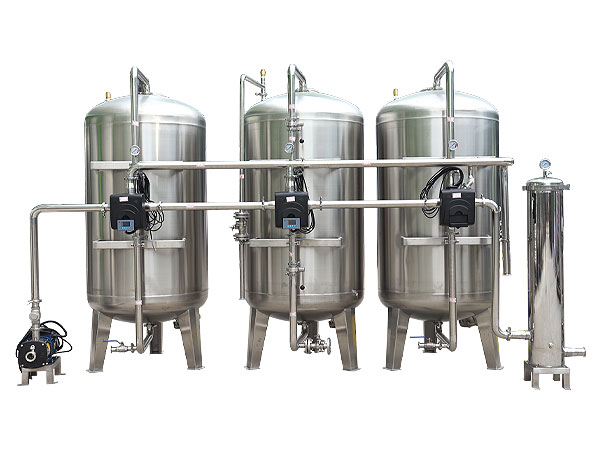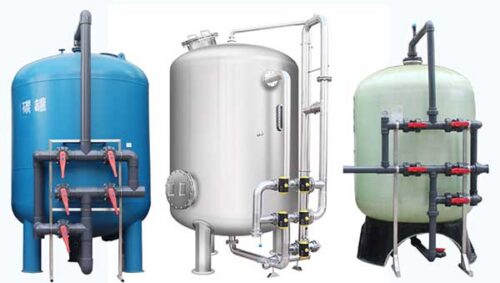Clean water is essential to our health and well-being. It provides us with the nourishment we need to stay healthy and hydrated. Unfortunately, not everyone has access to clean water. In many parts of the world, contaminated water is a serious problem, leading to the spread of diseases and even death. This is where water filter treatment systems, sea water desalination, and reverse osmosis systems come in. In this article, we’ll dive deep into each of these systems, exploring their benefits and how they can help provide us with clean, safe water.
CHUNKE Water Filtration Systems
The Importance of Clean Water
The human body is made up of around 60% water. This water is essential not only for our bodily functions, but also for our overall health. Drinking water helps to regulate body temperature, aids digestion, and supports healthy skin. Additionally, clean water can help to prevent the spread of diseases like diarrhea, cholera, and typhoid.
Health Benefits of Clean Water
Clean water is one of the most powerful tools we have for preventing disease and promoting good health. It can help to reduce the risk of waterborne illnesses and can even improve our immune system function. By drinking clean, filtered water, we can ensure that our bodies are getting the nourishment they need to function properly.
However, not all communities have access to clean water. In many parts of the world, people are forced to drink contaminated water, leading to a range of health problems. This is particularly true in developing countries, where water treatment and sanitation systems are often inadequate. As a result, millions of people die each year from water-related illnesses.
Access to clean water is also a critical issue in areas affected by natural disasters. When hurricanes, floods, or earthquakes strike, water sources can become contaminated, putting people at risk of illness. In these situations, it’s important to have access to clean, safe water to prevent the spread of disease.
Environmental Impact of Clean Water
Access to clean water isn’t only important for us, it’s also critical to the health of our environment. By reducing the amount of pollution and contaminants in our water systems, we can help to protect aquatic life and reduce our impact on the natural world. Clean water is essential for all life on earth, and we have a responsibility to protect this valuable resource.
One of the biggest threats to clean water is pollution from human activities. Industrial waste, agricultural runoff, and sewage all contribute to water pollution, making it difficult to maintain clean water sources. In addition, climate change is affecting water quality, with rising temperatures and changing weather patterns leading to increased water scarcity and contamination.
Efforts are being made to address these issues. Governments, NGOs, and individuals are working to improve water treatment and sanitation systems, reduce pollution, and promote sustainable water use. By working together, we can ensure that everyone has access to clean, safe water, and that our environment is protected for future generations.
Water Filter Treatment Systems
Water filter treatment systems are an effective way to remove contaminants and impurities from drinking water. There are several types of water filter treatment systems, each with its own strengths and weaknesses. Water is essential for good health and well-being, and it is crucial to ensure that the water you drink is clean and safe.
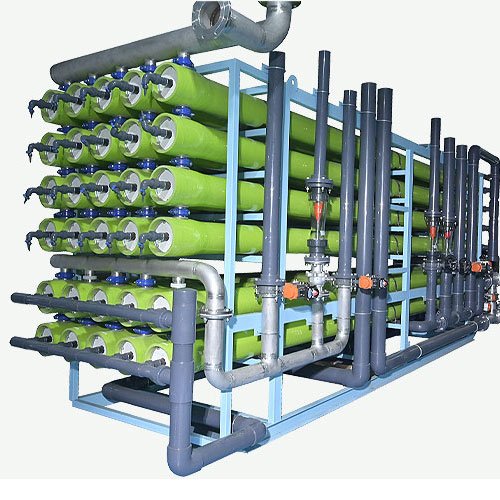
Types of Water Filter Treatment Systems
The most common types of water filter treatment systems are activated carbon filters, reverse osmosis filters, and distillation systems. Activated carbon filters are effective at removing chlorine, sediment, and some volatile organic compounds (VOCs). Reverse osmosis filters use a semi-permeable membrane to remove contaminants, including bacteria, viruses, and heavy metals. Distillation systems heat water to boiling point, turning it into steam and leaving impurities behind. It is important to note that each system has its own unique advantages and disadvantages, and it is essential to choose the one that best suits your needs.
Activated carbon filters are one of the most popular water filter treatment systems because they are affordable and easy to install. They are effective at removing chlorine, sediment, and some VOCs, which can affect the taste and odor of water. Activated carbon filters are also relatively low maintenance, requiring only periodic replacement of the filter.
Reverse osmosis filters are another popular type of water filter treatment system. They are highly effective at removing a wide range of contaminants, including bacteria, viruses, and heavy metals. Reverse osmosis filters are also relatively easy to install and maintain, although they can be more expensive than other types of water filter treatment systems.
Distillation systems are the least common type of water filter treatment system. They are effective at removing a wide range of contaminants, including bacteria, viruses, and heavy metals. However, they can be more expensive than other types of water filter treatment systems, and they require more maintenance.
Benefits of Water Filter Treatment Systems
Water filter treatment systems are an affordable and effective way to make sure that your drinking water is clean and safe to consume. They can help to reduce the risk of waterborne illness and can improve the taste and odor of water. By removing impurities and contaminants, water filter treatment systems can also help to prolong the life of appliances like coffee makers and dishwashers.
Drinking clean and safe water is essential for good health. Water filter treatment systems can help to ensure that you and your family are drinking water that is free from harmful contaminants. By removing impurities and contaminants, water filter treatment systems can also improve the taste and odor of water, making it more enjoyable to drink.
How to Choose the Right Water Filter Treatment System
It is also important to consider the cost and maintenance requirements of each system. Some systems may be more expensive to install and maintain than others. Additionally, some systems may require more frequent filter replacements than others.
Ultimately, the right water filter treatment system for you will depend on your individual needs and preferences. By taking the time to research and compare different systems, you can find the one that best suits your needs and provides you with clean and safe drinking water.
Sea Water Desalination
Sea water desalination is the process of removing salt and other minerals from seawater to create drinkable water. It has become an increasingly popular solution for areas with limited access to fresh water, like arid regions or coastal communities.
The Desalination Process
The desalination process involves several steps, including pre-treatment, membrane separation, and post-treatment. During pre-treatment, seawater is treated with chemicals to remove suspended solids and prevent fouling of the membranes. Then, the seawater is forced through a semi-permeable membrane that allows water molecules to pass through while trapping salt and other impurities. Finally, the water is treated with chemicals to ensure it is safe for consumption.
Advantages of Sea Water Desalination
The primary advantage of sea water desalination is that it can provide a reliable source of clean water in areas where freshwater resources are limited. It can also help to reduce the burden on existing water systems, making it a valuable tool for improving water security and reducing vulnerability to drought.
Challenges and Environmental Concerns
Despite its many benefits, sea water desalination is not without its challenges and environmental concerns. The desalination process requires a significant amount of energy and can be expensive, making it less accessible for low-income communities. Additionally, the process can harm marine life if not properly managed, and can cause environmental damage if not designed with sustainability in mind.
Reverse Osmosis Systems
Reverse osmosis systems are another popular option for those looking to remove contaminants from their drinking water. They work by pushing water through a semi-permeable membrane that allows water molecules to pass through while trapping larger molecules like bacteria, viruses, and minerals.
How Reverse Osmosis Works
Reverse osmosis systems use pressure to push water through a semi-permeable membrane that traps impurities. The water that passes through the membrane is then collected in a separate container, leaving behind the contaminants. Reverse osmosis systems can remove a wide range of contaminants, including lead, arsenic, fluoride, and chlorine.
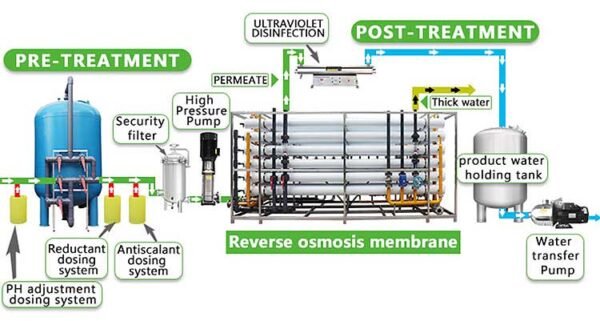
Benefits of Reverse Osmosis Systems
One of the primary benefits of reverse osmosis systems is their ability to remove a wide range of contaminants from drinking water. They are also simple to use and require little maintenance. Additionally, reverse osmosis systems are cost-effective, making them an affordable option for households looking to improve the quality of their drinking water.
Factors to Consider When Choosing a Reverse Osmosis System
When selecting a reverse osmosis system, it’s important to consider factors like water quality, storage capacity, and maintenance requirements. Look for systems that are designed to remove the specific contaminants present in your water, and consider the amount of water you’ll need to store and use each day. Additionally, make sure you understand the maintenance requirements of the system, including how often it will need to be serviced and how to replace filters.
What is the best water filter treatment system?
Our Recommendations:
- If you have just water hardness problem, CHUNKE water softener systems.
- If you have iron problem, CHUNKE Mechanical Filters.
- If you have high TDS (total dissolved solids) problem, CHUNKE Reverse Osmosis Filtration Systems.
- If you have Turbidity and TSS (Total Suspended Solids) problem, CHUNKE Mechanical Filters, Activated Carbon Filters or Ultrafiltration Systems.
- If you have salt problem on your water, CHUNKE Brackish Water Desalination Systems or Sea Water Desalination Systems, BWRO and SWRO Plants.
In fact that, if you give us your water analysis report, we can suggest to you best solution, fix to your application and budget.
Commercial Reverse Osmosis Water Filter Treatment Systems
Capacity Range: 2m3 to 72m3/Day
Membrane Diameter: 2.5″-4″
Working Pressure: 150psi
Feed Water TDS: 0-2000ppm
Industrial Reverse Osmosis Water Treatment Filter Systems
Capacity Range: 72m3 to 7500m3/Day
Membrane Diameter: 8″
Working Pressure: 150 to 450psi
Feed Water TDS: >2000ppm
Water Softener Filter Systems
Capacity Range: Up to 220m3/Hour
Material:Stainless Steel 304, 316, Carbon Steel, Fiberglass Reinforced Plastic FRP
Operating Pressure: Up to 100psi
Exchange Capacity: 10K to 4200K Grain
Mechanical Water Filter Treatment Systems
Capacity Range: 2m3 to 185m3/Hour
Material:Stainless Steel 304, 316, Carbon Steel, Fiberglass Reinforced Plastic FRP
Operating Pressure: Up to 150psi
Control Valve: Manual or Automatic
Conclusion
Access to clean water is essential for our health, well-being, and the health of our planet. Water filter treatment systems, sea water desalination, and reverse osmosis systems are all valuable tools for improving water quality and availability. By understanding how these systems work and the benefits they provide, we can make informed decisions about how to care for our most precious resource.
To get more information about our water filtration treatment systems, please fill in form. Our professinal technical sales team will contact with you in 24 hours.

